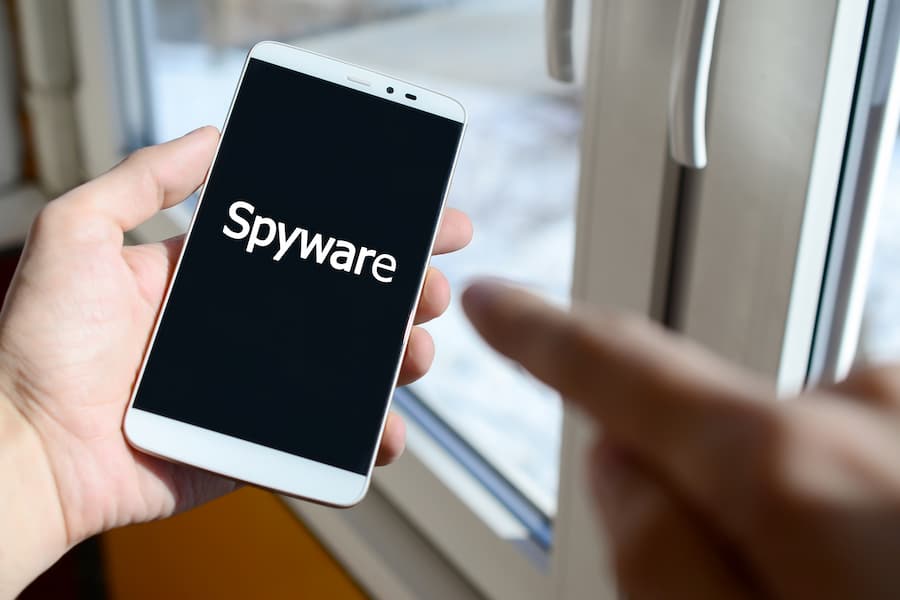How Does Spyware Work – Definition and Working
Have you ever felt like someone is peering over your shoulder while you browse the web? In the shadowy corners of the internet a software program called spyware. Do you know how does spyware work? This malicious program operates in secret, stealthily gathering your personal information without your knowledge or consent. Spyware can come in many forms, each with its own devious function.
The consequences of a spyware infection can be devastating, ranging from stolen identities to financial loss. But fear not! This comprehensive guide will shed light on the dark world of spyware, explaining how it works and how you can protect yourself.
What is Spyware?
Definition of Spyware
Imagine a software program that operates in the shadows, silently observing your every digital move. Spyware is precisely that – a clandestine program designed to infiltrate your computer or mobile device without your permission.
This malicious software acts as a silent observer, surreptitiously gathering your personal information and online activity. Spyware can undetected in the background, harvesting your data for nefarious purposes.
How Does Spyware Differ from Malware?
Malware, a broader term encompassing malicious software, includes various threats like viruses and worms. While viruses can replicate and spread on their own, spyware focuses on stealthily collecting your data. Unlike worms that exploit network vulnerabilities, spyware relies on user interaction, such as clicking a malicious link, to gain access to your device.
The Malicious Intent Behind Spyware
The data collected by spyware can be a goldmine for cybercriminals. Stolen login credentials can lead to identity theft, while browsing history can be used for targeted advertising. Financial information gleaned by spyware can be exploited for fraudulent charges. In some cases, spyware may be used for online harassment or stalking, causing significant emotional distress.
How Does Spyware Work?

Different Types of Spyware and their Functions
Spyware comes in a variety of disguises, each with its own nefarious agenda. Here’s a closer look at some of the most common types:
- Keyloggers: These digital eavesdroppers in the background, recording every keystroke you type. This includes passwords, credit card numbers, and any other sensitive information you enter online.
- System Monitors: Ever feel like your computer is running sluggishly after installing a new program? System monitors are a type of spyware that keeps tabs on your activity. They track the applications you use, the websites you visit, and even your browsing history.
- Trojan: These digital tricksters disguise themselves as legitimate software, often lurking within seemingly harmless downloads. Once installed, Trojans create a backdoor for attackers, granting them access to your device and personal information.
- Rootkits: Imagine a burglar who not only breaks into your house but also hides the evidence of their intrusion. Rootkits are particularly insidious types of spyware that burrow deep into your system, granting attackers administrator-level control. This allows them to remain undetected while wreaking havoc on your device.
- Mobile Spyware: Our smartphones hold a treasure trove of personal information. Mobile spyware specifically targets these devices, stealing data like contacts, text messages, and even location information.
- Email and Social Media Spyware: These crafty programs can target your email and social media accounts. They may employ tactics like phishing emails to steal login credentials or monitor your online activity on these platforms.
The Infection Process
Spyware can infiltrate your devices through various cunning methods. One common tactic involves clicking on malicious links or opening infected attachments disguised as legitimate emails. Drive-by downloads, where malware is unknowingly downloaded when visiting a compromised website, are another sneaky method. Social engineering tricks, where attackers manipulate you into installing spyware through deceptive tactics, are also a concern.
Data Collection and Transmission
Once installed, spyware operates silently in the background, continuously gathering your data. This information can be transmitted to remote servers controlled by attackers. The data collection process can be resource-intensive, sometimes leading to slower device performance or unexplained battery drain on mobile devices.
Consequences of Spyware Infection
The repercussions of a spyware infection can be far-reaching, impacting your finances, privacy, and even your sense of security.

Identity Theft
Imagine a scenario where a thief pilfers not just your physical wallet but your entire digital identity. Spyware can steal sensitive data like usernames, passwords, and financial information. This stolen information can be used by cybercriminals to commit identity theft.
In this situation, criminals can impersonate you online, racking up charges on your credit cards or opening fraudulent accounts in your name. Identity theft can be a lengthy and complex ordeal to resolve, causing significant financial and legal headaches.
Privacy Invasion
Spyware operates in the shadows, acting as a silent observer to your online activity. By monitoring your browsing history, emails, and messages, spyware can compromise your online privacy. This intrusion can be a deeply unsettling experience, leading to a sense of vulnerability and a loss of trust in the digital world. The emotional distress caused by a privacy breach can be significant, impacting your sense of security online.
Financial Loss
Spyware that steals financial information, like credit card details, can lead to unauthorized charges and financial loss. In addition, stolen data can be used for phishing scams, where attackers impersonate legitimate entities to trick you into revealing even more sensitive information. Financial vigilance is crucial after a suspected spyware infection.
Device Damage
While not as common, some particularly malicious spyware can damage your device’s performance. This can manifest as slowdowns, crashes, or even corrupted files. In severe cases, spyware removal may be necessary to restore your device to full health.
How to Protect Yourself from Spyware
Fortunately, there are several steps you can take to fortify your defenses against spyware attacks.
Anti-Spyware Software
Your first line of defense is a robust anti-spyware software program. Reputable security software can detect and remove spyware threats before they can wreak havoc. Look for a program that offers real-time protection, constantly scanning your device for malicious activity. Remember, keeping your anti-spyware software updated with the latest definitions is crucial for maintaining optimal protection.
Safe Browsing Habits
Developing safe browsing habits is essential in the fight against spyware. Exercise caution when clicking on links or opening attachments, especially from unknown senders.
Suspicious emails that create a sense of urgency or offer too-good-to-be-true deals are often red flags. Avoid downloading software or applications from untrusted sources. Instead, stick to reputable app stores and official vendor websites.
Software Updates
Those software update notifications you keep ignoring? They’re actually crucial for preventing spyware. Security updates often patch vulnerabilities that could be exploited by spyware. Therefore, make it a habit to install updates for your operating system, web browser, and applications promptly. By keeping your software current, you’re essentially closing the door on potential spyware entry points.
Strong Passwords
Strong passwords are the gatekeepers of your online accounts. Avoid using weak passwords like birthdays or pet names. Instead, opt for complex passwords that include a combination of uppercase and lowercase letters, numbers, and symbols. Unique passwords for each account offer an additional layer of security. For those who struggle to remember complex passwords, password managers can be a helpful tool for secure storage.
What May People Also Ask
Can a free antivirus program detect spyware?
While some free antivirus programs offer basic spyware protection, they may lack the comprehensive features of paid security suites. These paid suites often include real-time protection and advanced detection capabilities for various types of malware, including spyware.
What are some signs of spyware infection?
If your device is running sluggishly or experiencing unusual pop-ups, these could be signs of a spyware infection. Unexplained browser redirects to unfamiliar websites or unknown programs running in the background are also red flags. Tracking cookies, which gather data about your browsing habits and can be used for targeted advertising, are a common form of non-malicious spyware-like software.
How can I remove spyware from my device?
If you suspect a spyware infection, the first step is to run a scan with your antivirus or anti-spyware software. Reputable removal tools can often detect and eliminate spyware threats. In more complex cases, consulting a computer technician for professional removal may be necessary.
Is there legal spyware?
Monitoring software used for parental controls or employee monitoring with proper consent isn’t necessarily malicious. The key distinction lies in transparency. Spyware operates in secret, whereas legitimate monitoring software functions with the user’s knowledge.
Conclusion
Spyware can be a daunting threat, but by understanding its methods and implementing the right security measures, you can protect yourself.
By installing reputable anti-spyware software, practicing safe browsing habits, keeping your software updated, and using strong passwords, you can significantly reduce the risk of a spyware infection. Remember, a little vigilance can go a long way in safeguarding your privacy and online security.
For more information and services you can contact us for a free quote and estimation.
- Address: 165 Veterans Way, Warminster, PA 18974
- Email: sales@aispa.us
- Call Us: (215) 999-8445











